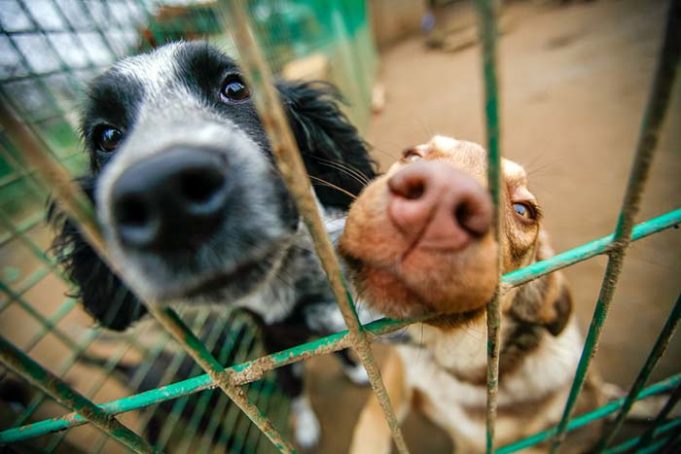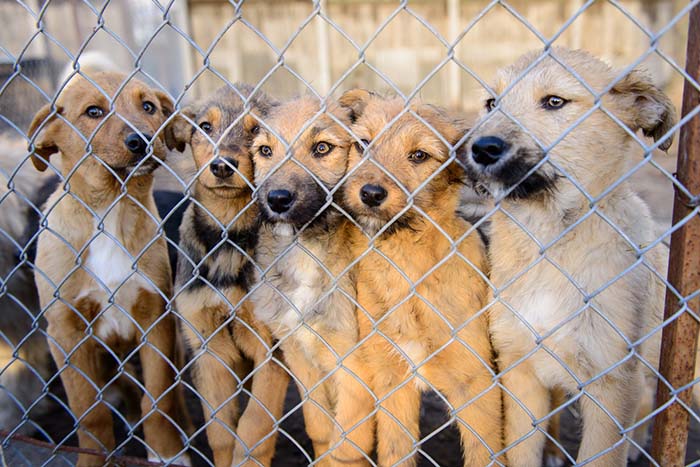Adopting a dog is a big decision which requires a lot of thought and preparation. After all, with great joy comes great responsibility. Choosing the right dog for you and your lifestyle can help make the transition easier for both of you and make the experience of having a dog even better than you expect. So if you begin your search with a question what kind of dog should I get, then you're doing it right.
The right pet adoption choice can also minimize chances of something going wrong. After all, there are many reasons why adopted dogs get returned to shelters. With so many different pets in shelters, you have too many options and making the right decision can be difficult.
Let’s take a look at some of the most important factors which can help you answer the question what kind of dog should I get, and things that you must consider.
What Kind of Dog Should I Get?
Here's what you should consider
Breed
Some people prefer purebred dogs because it is easier to predict their behavior and size, but there are no guarantees either way. A mixed breed dog can have a great personality as well. Even if you would like to enter your new pup into a competition, that’s something you can now do with a mixed breed as well at many dog show competitions.
If you still prefer a purebred dog, these are some of the best dog breeds for beginners because of their temperament, trainability and grooming needs and other factors.
Size
Size of the dog is very important. If you live in an apartment, many large and even medium breed dogs may not be the right choice. You need to make sure that you have enough space for the dog, including all of his stuff, like bed and crate. Overall, it's not even the size of the dog but rather his energy and exercise requirements that make it a less favorable option for apartments.
Many small breeds and toy dog breeds are not a good fit for families with small children since they can often be aggressive, especially around curious toddlers. Teacup dogs may be a better choice if you're looking for a small dog.
Large dogs can also be dangerous for small children since they can easily fall over them but most medium and large breeds have a calmer temperament and will be more patient with children. Also, a bite from a large dog can potentially be more serious than a bite from a small dog. Overall, there's a number of good dogs for kids but if you have small children at home, it's best to choose a medium-sized dog.
Age
 The best time to adopt a dog will depend on the dog's condition, where you are in your life and your family situation. Puppies and senior dogs require the most care, attention and health related concerns.
The best time to adopt a dog will depend on the dog's condition, where you are in your life and your family situation. Puppies and senior dogs require the most care, attention and health related concerns.
If you have kids, choosing a puppy can be a bit too much for you. Puppies need to be housebroken, trained and they often have erratic sleeping patterns (i.e. they don’t sleep when you do). With a puppy and a kid on board, you will rarely have any time for yourself. Another common problem with puppies is their growth, which can be unpredictable.
Senior dogs often come with health problems and veterinary bills alone can pile up to present a real problem. However, they are more calmer, require less attention and will happily play with kids in a mild manner. Overall, adolescent dogs (6 months to 2 years) and adult dogs are probably the best choices if you have family or don’t have enough time, and cannot afford to spend too much time caring for dog's health problems.
Adolescent dogs are old enough so you don’t have to deal with the puppy stuff, but they are still young enough for you to train them your way and not worry about common health issues. You should decide in advance what you want age-wise so you don’t make an impulse dog adoption decision at the shelter.
Personality
Dogs from rescue centers often come with a detailed personality description, especially if they spent some time in foster care. That is great, especially if you are a first-time owner and you don’t really know what to expect.
Choose a dog with a personality that matches yours, as well as your lifestyle. Some dogs have high-energy, others are calm. Some are independent, others need more attention. Some personality traits can be related to the dog’s breed, but not all dogs of the same breed have the same personality.
In one study done at Texas University, the researcher showed that the initial interaction between adopter and dogs often determines whether a dog will get adopted. That’s why it is very important to interact with a dog before you take him home. You can also choose to become a foster parent for a dog before you adopt him. That way you can see how you match up in your home environment, not just in the shelter or rescue center.
Health
Adopting an injured dog or a dog with a chronic disease is very commendable and brave, but it's also a huge responsibility. It takes more time, energy and money to care for these dogs and you might end up being disappointed with the experience if you're not prepared for it. If you have a family or you never owned a dog before, this is probably not a good idea.
However, you can’t always be sure that you are taking home a completely healthy dog. Before you adopt, you should inquire about the dog’s health, whether he is up to date with his vaccines and whether he has some behavior problems. There's a number of questions you can ask of the shelter staff before making up your mind.
Coat
 Many adopters don’t take a dog’s coat into account, but they should because caring for that coat may become part of your daily routine. While long-haired dogs appear better-looking, their coats also demand constant care and more work. Do you know what double coated dogs are? Are you prepared to groom your dog regularly or take him to the groomer, which may add to your budget?
Many adopters don’t take a dog’s coat into account, but they should because caring for that coat may become part of your daily routine. While long-haired dogs appear better-looking, their coats also demand constant care and more work. Do you know what double coated dogs are? Are you prepared to groom your dog regularly or take him to the groomer, which may add to your budget?
What about being prepared to deal with the dog's shedding? While short-haired dogs also shed, they do it in smaller quantities. There's a number of high maintenance dogs that will probably take a lot more time and effort grooming them than others. Think about this before you make your decision.
You should know what kind of dog you want before you even go to the shelter or rescue center. Asking questions like what kind of dog should I get is a good place to start and then research every aspect of your and dog's lifestyle. Consider the dog’s breed, size, coat, age, health and personality in order to find the best match. Making the right decision will bring you a friend for life that you don't have to return to a shelter.
READ NEXT: 50 Dog Adoption Questions They’re Going to Ask You















